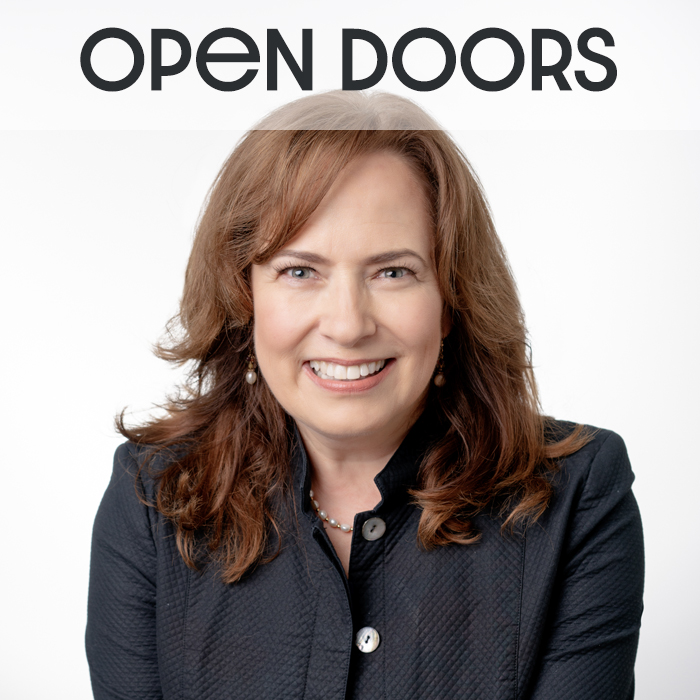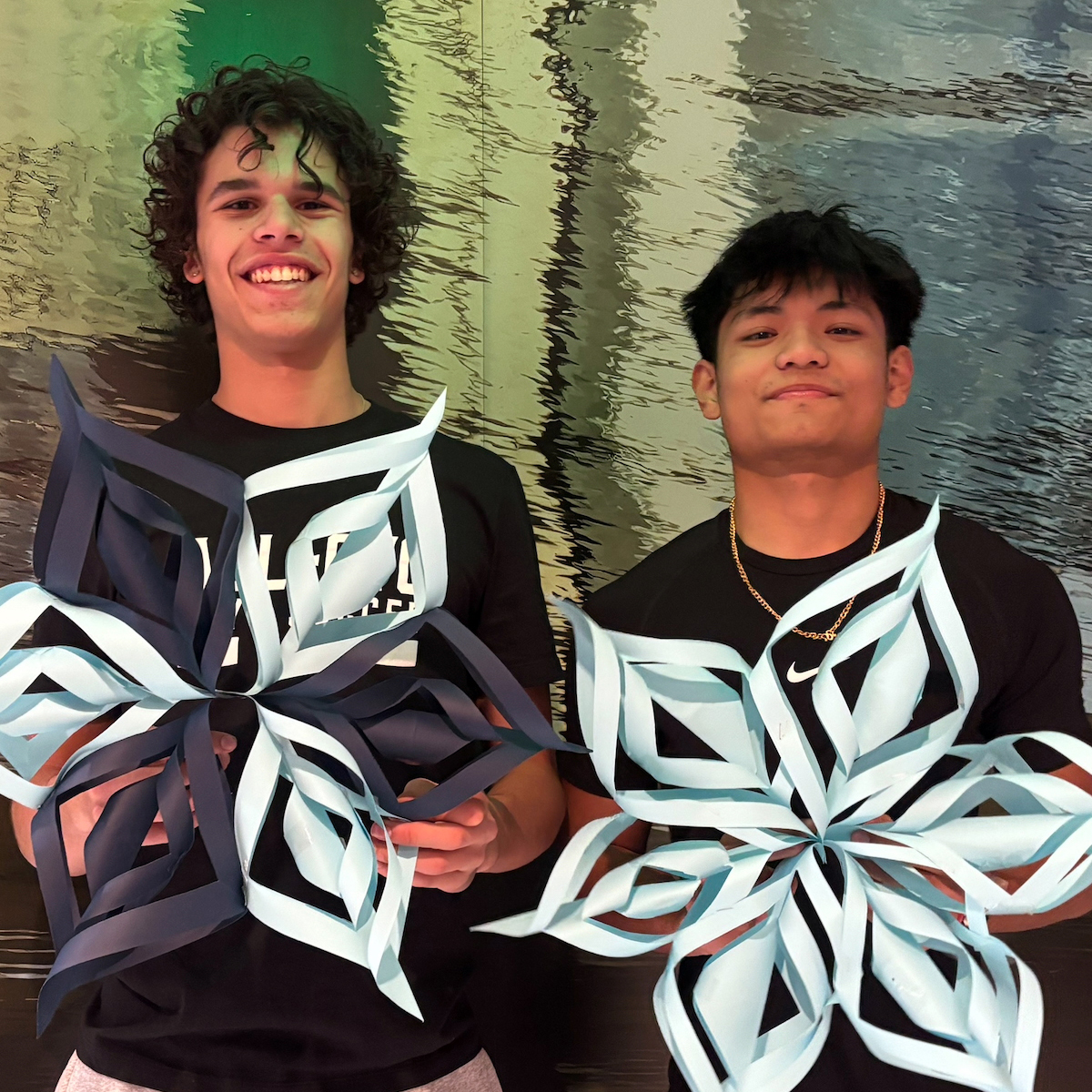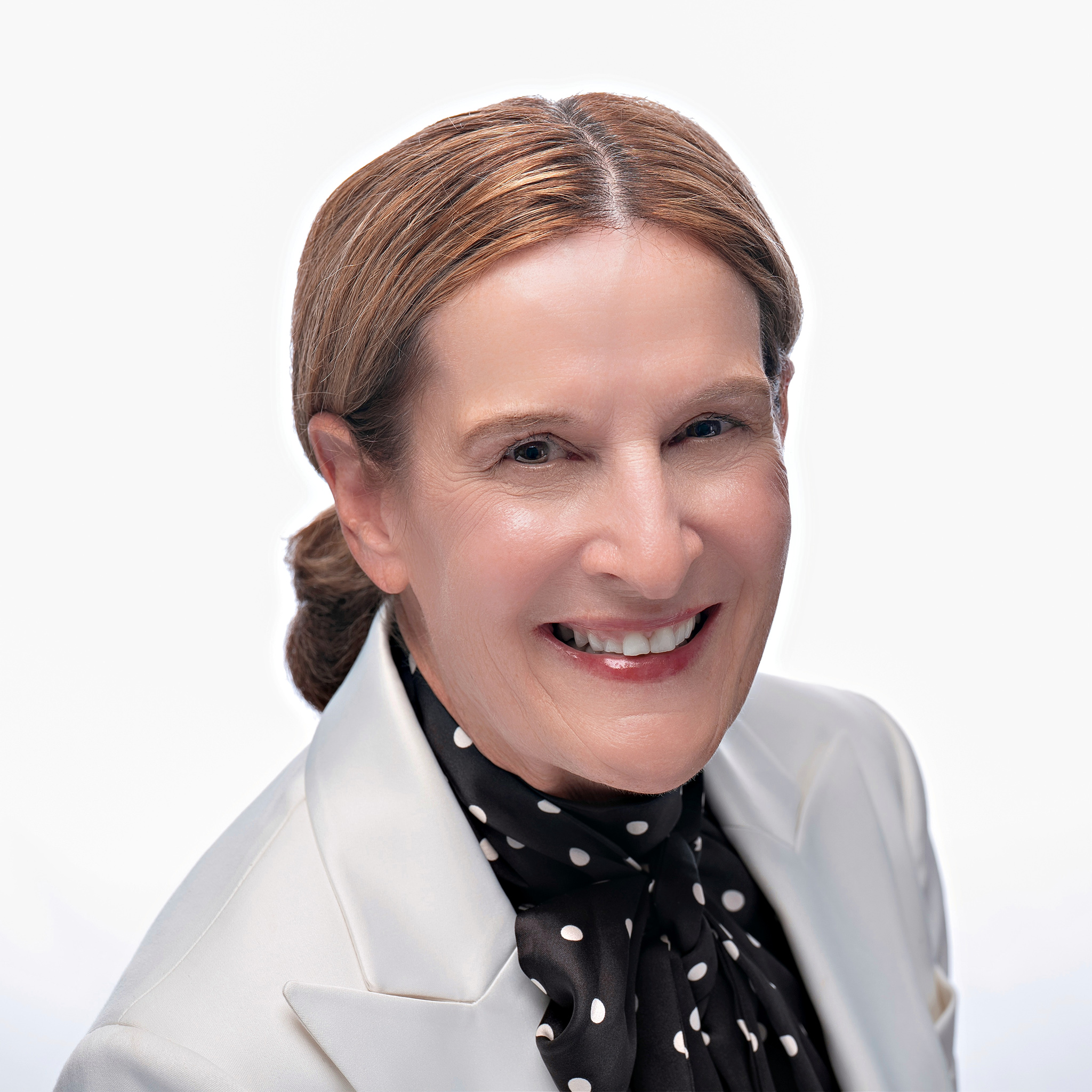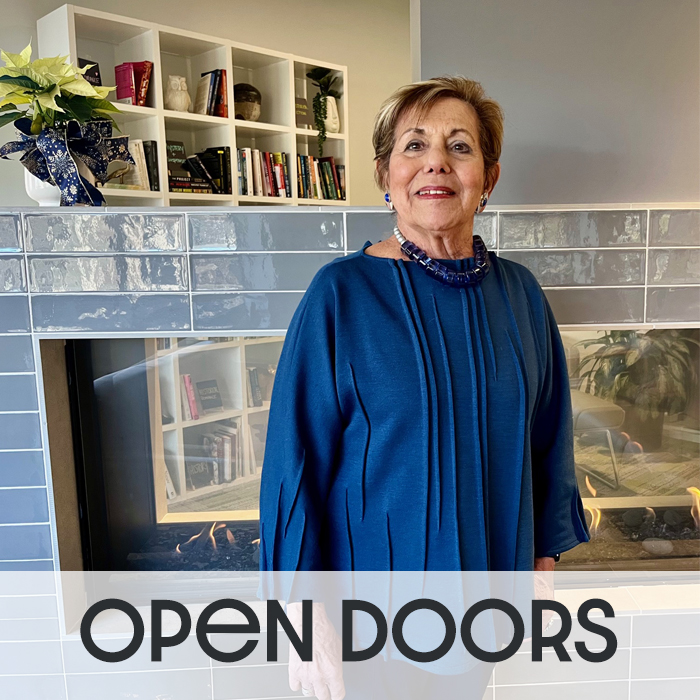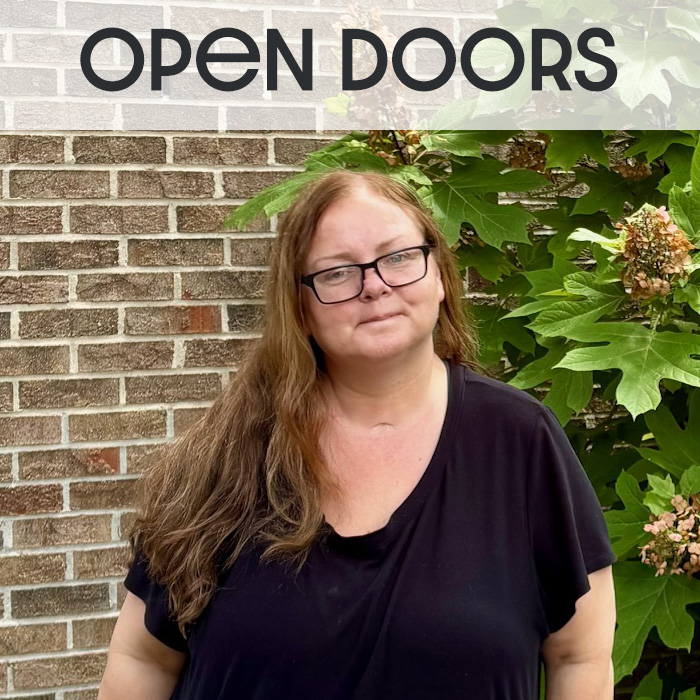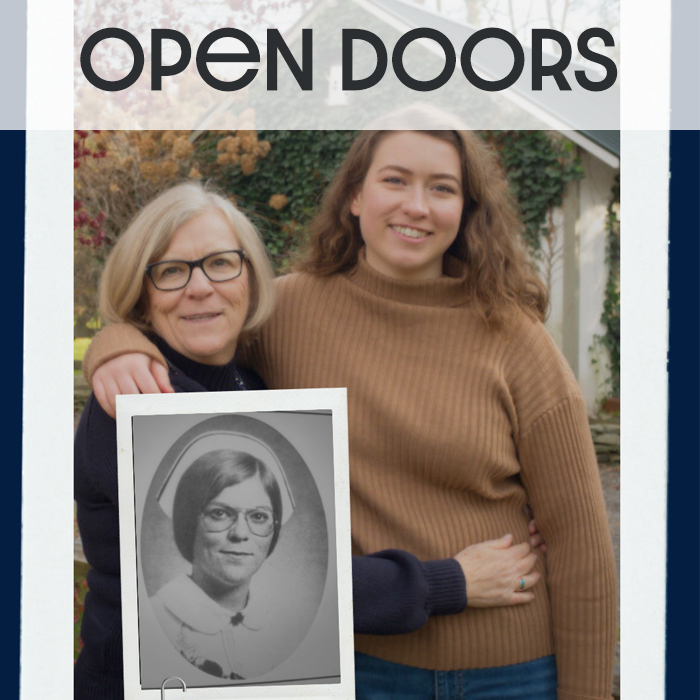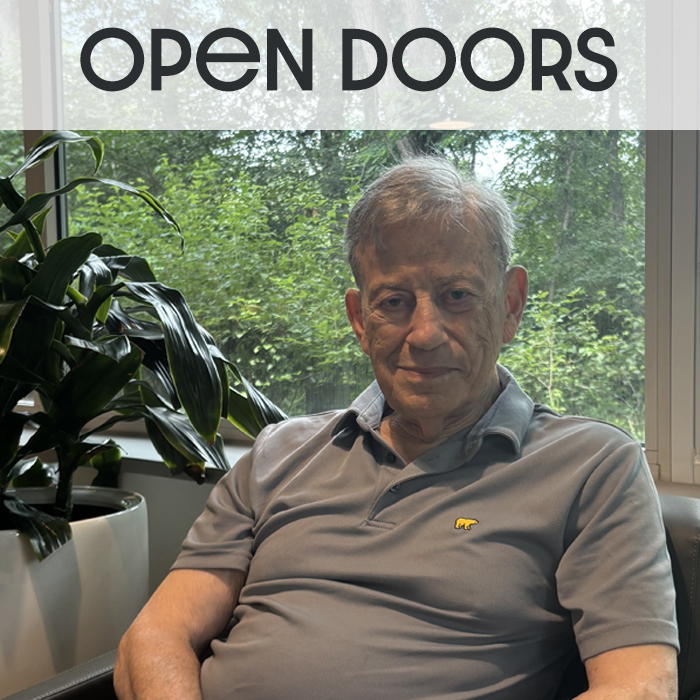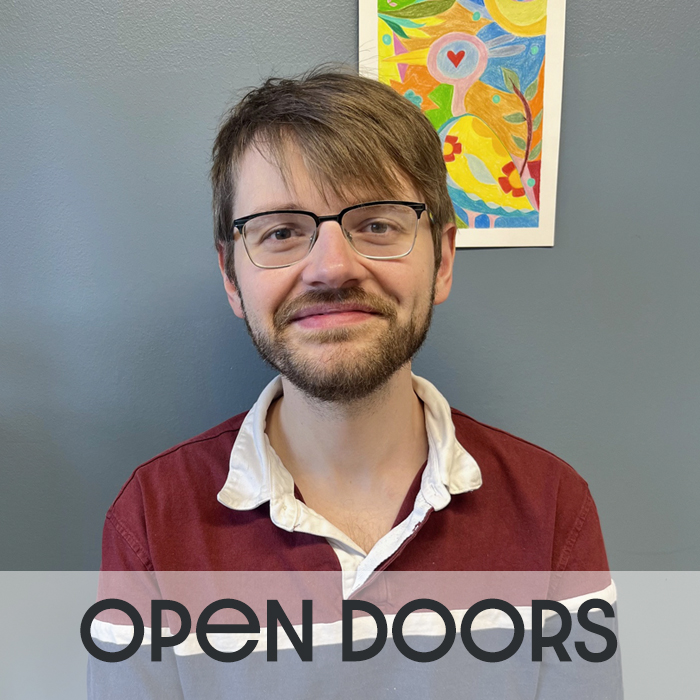
Open Doors
Meet Intern Chris
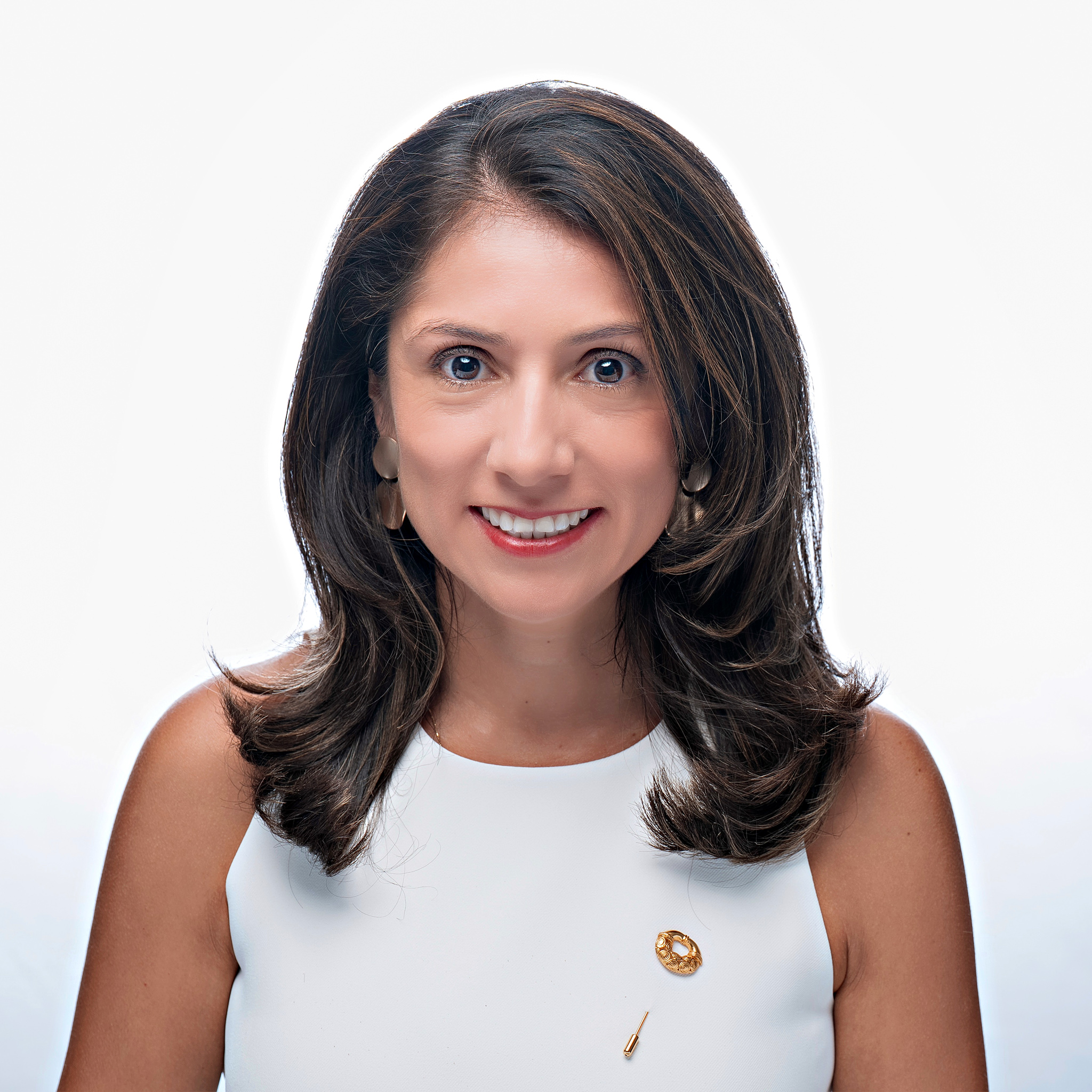
Ana Carolina González-Peña • April 29, 2025
Christopher Stanley – A Journey from Ministry to Social Work
At CMAP, we are fortunate to have had Chris as an intern, bringing not only his academic expertise but also his compassionate heart to our community. From his background as a former pastor to his current studies in social work at Rutgers, Chris’s journey is one of deep empathy and dedication to helping others. Through his work with older adults, he has witnessed the power of human connection and the importance of listening. Today, Chris shares his story, his experiences at CMAP, and the valuable lessons he has learned about aging and caregiving.
Q: Chris, we’ve had the pleasure of seeing you work closely with our older adults and the team. Can you tell us a bit about yourself and what inspired you to pursue a career in health and wellness for older adults?
Chris:
Before starting at the Center for Modern Aging Princeton, I served as a pastor in the United Methodist Church for about eight years. During that time, I realized my passion for helping people through struggles and difficult times. However, after the pandemic hit in 2020, I began to reflect on my life and the impact I was making. I decided to switch gears and pursue a career in social work. Working with older adults has always been something I’ve been drawn to, and my experience in ministry — especially with older adults — felt like a natural transition. I’ve always believed in the value of helping others, and social work gives me the opportunity to walk alongside people and offer support during challenging moments.
Q: Balancing your graduate studies at Rutgers with your work here must have been challenging. We also know you have a young, playful daughter. How do you manage your time between school, your internship, and family life? How has this internship influenced both your academic and professional development?
Chris:
The key to managing my time has been the incredible support from my wife, Rachel. She’s been an amazing partner, especially when it comes to balancing my responsibilities. There were weeks when I had big projects or papers, and Rachel would step in and take on more of the parenting duties for a few days. Her support has been invaluable. I also made some personal adjustments — like deleting Facebook — to help me focus. With everything going on, it was actually nice to disconnect from social media. Time management, with Rachel’s help, has really been the cornerstone of balancing all my roles.
Q: You’ve shown such kindness and empathy toward the older adults during your time here. Was there a particular experience that deeply impacted you or changed your perspective on aging or senior care?
Chris:
One of the most significant things I’ve learned during my time here is the financial vulnerability many older adults face. I remember meeting someone who was living off Social Security, and after talking with them about the challenges they were facing, I was struck by how little they had to live on. That experience really opened my eyes to how financially difficult life can be for many older adults. I’ve also seen how much people value simple conversation. Often, they don’t want advice or solutions — they just want someone who cares and is willing to listen. That’s been deeply moving to me. Emotional support is just as important as any other kind of care.
Q: What has been the most rewarding part of your internship at CMAP? Is there anything in particular you’ll miss once the internship ends?
Chris:
The most rewarding part has been engaging with older adults and providing a space where they feel seen and heard. It’s a privilege to be part of their lives, even briefly. I’ll definitely miss the relationships I’ve built — with both the participants and the team. Having meaningful conversations with older adults about their challenges and life experiences has been incredibly fulfilling. It’s not always easy, but knowing you’re making a positive impact makes it all worth it.
Q: We’re always looking for ways to improve. Do you have any feedback on how we can enhance the experience for older adults or expand any of our services?
Chris:
One thing I’ve noticed is that there are two sides to CMAP: the programs at the main center and the social services provided at places like Princeton Senior Living (PSL). Sometimes, those sides feel a bit disconnected. I think it would be great to bridge that gap and get more PSL residents involved in the amazing events happening at the center. Many people at PSL may not be aware of all the resources CMAP offers. A little more outreach could really help strengthen that connection.
Q: What advice would you give to others considering a career in social services or working with older adults?
Chris:
I’d encourage people to approach this field with curiosity and an open mind. There are so many stereotypes about aging that simply aren’t true. I remember when I told a friend I was going into geriatric social work, they said, “Oh, that’s so neat — I love playing bingo with older people.” That’s such a limited view of who older adults are. They’re incredibly diverse and have so much wisdom to offer. If you go into this work ready to listen and learn, you’ll grow just as much as the people you’re supporting.
Q: Looking ahead, what are your professional goals? How has your experience at CMAP and your education at Rutgers prepared you for the next step in your journey?
Chris:
I’m still figuring out exactly where I want to go, but I’m really interested in case management and possibly counseling or therapy. There’s a lot of overlap between ministry and social work, and that’s been helpful in shaping my direction. My time at CMAP, along with my education at Rutgers, has helped me see how broad and impactful social work can be. I’m excited to keep growing and to continue finding ways to make a meaningful difference.

